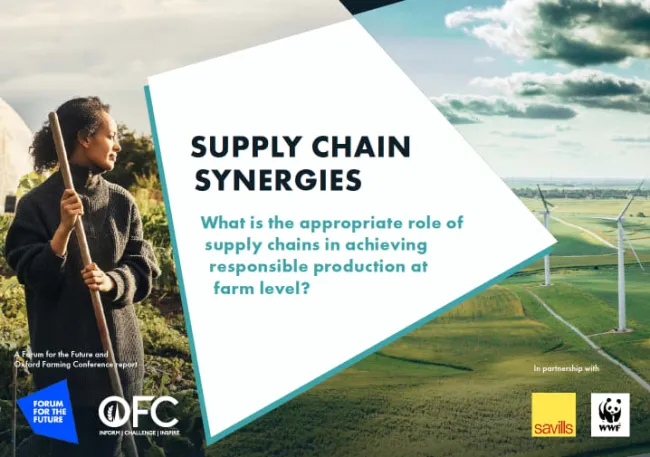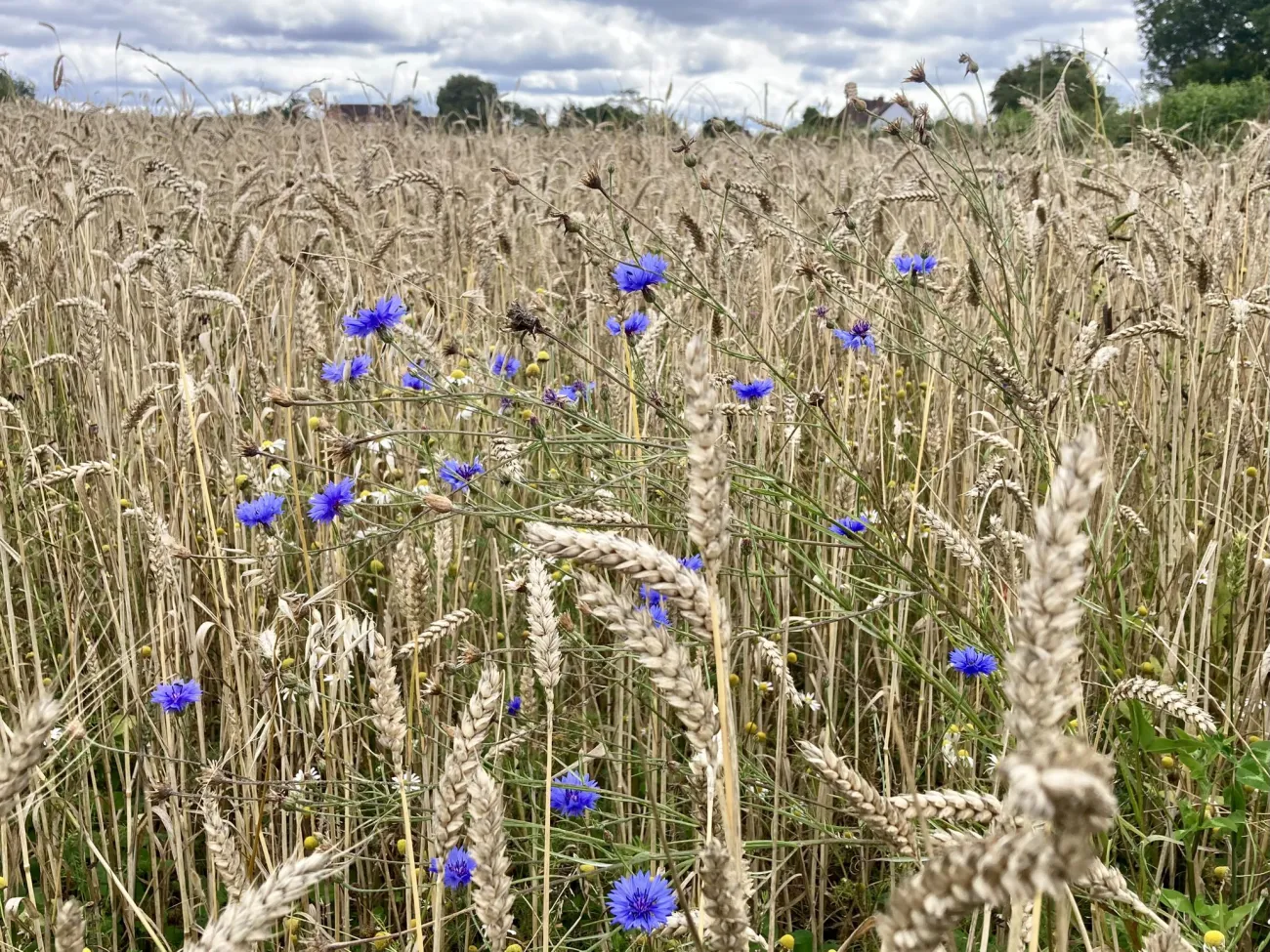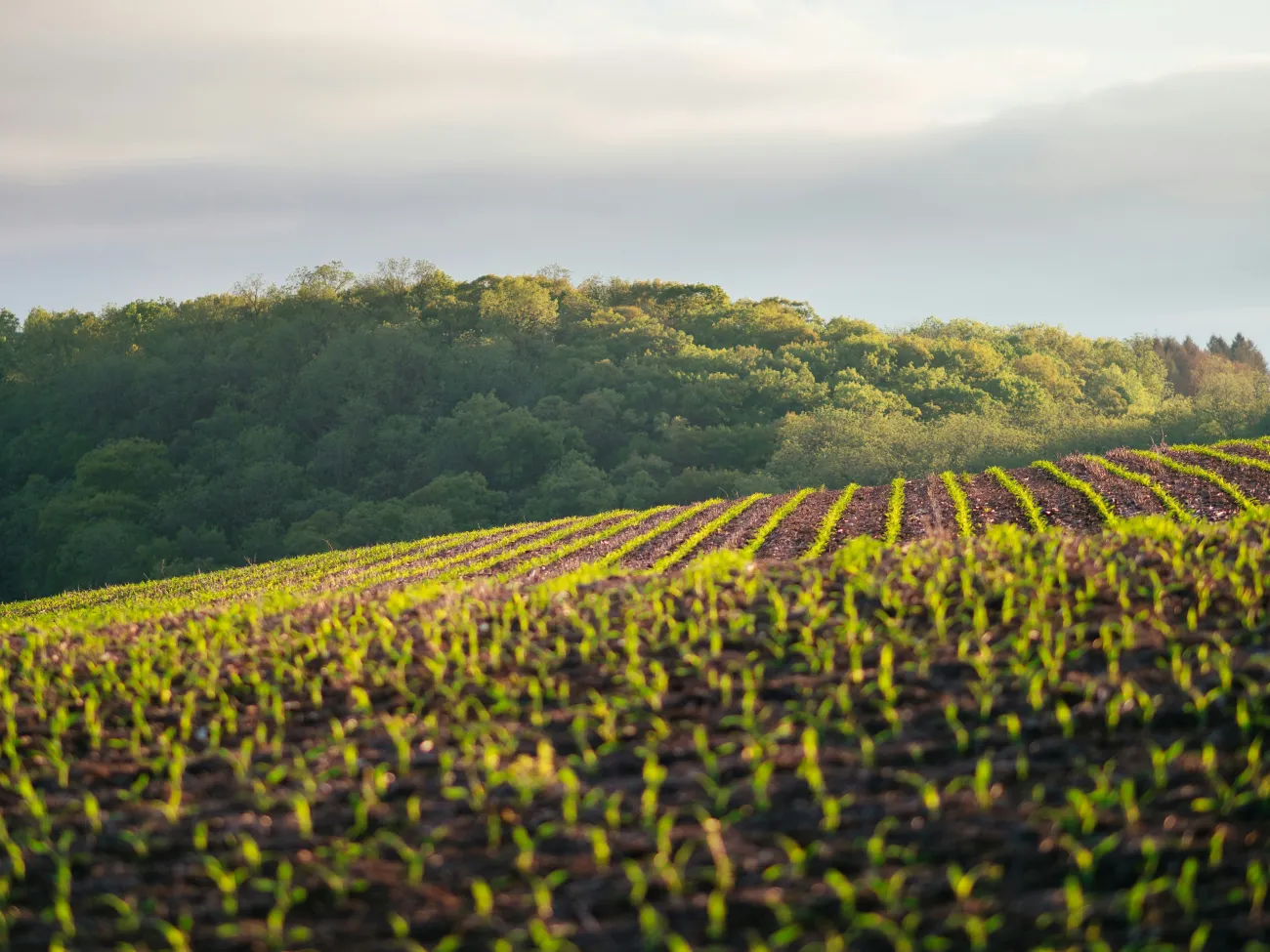This report from Forum for the Future, based on a series of interviews as well as desk research, identifies barriers to food supply chain transformation in the UK as well as options for voluntary action and policy to support change.

It finds that UK food production is currently heavily dependent on inputs such as fuel, fertiliser and animal feed, and that farmers are bearing the financial pressures of narrow profit margins, having little negotiating power relative to consolidated retailers and processors, and often bearing the costs and risks of investment.
The farmers interviewed identified three key themes in relation to fair and resilient supply chains:
- The need for supply chain relationships that offer greater fairness and stability for farmers, giving enough resources and predictability to allow farmers to innovate and invest.
- Sharing the challenges of transition such as investment in new equipment and adhering to new standards.
- Long-term supply chain reconfiguration towards a model that internalises the true costs of food production using harmonised standards and metrics, offers fairness in supply chain relationships, has diverse business models and has transparent and traceable supply chains, and deepens consumer engagement to drive demand for sustainable and socially responsible products.
The report also identifies five key policy areas that are important for a food supply chain transition:
- Integrated strategy that accounts for the economic, social and environmental aspects of food and farming.
- Using government regulation to mandate codes of practice and offer supply chain transparency in cases where voluntary action is not sufficient.
- Using public procurement standards to drive demand for food with positive environmental and social outcomes.
- Ensuring that international trade agreements do not allow UK farmers to be undercut by imported food produced to lower standards.
- Focusing on innovation, skills and education to deliver the evidence base for change.
Read the full report Supply Chain Synergies – What is the appropriate role of supply chains in achieving responsible production at farm level? here. See also the TABLE explainer How can we reduce food-related greenhouse gas emissions?




Comments (0)